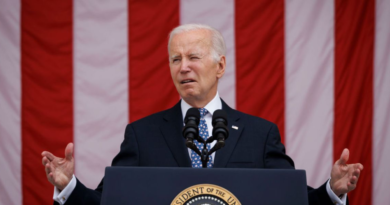Threads won’t be fun — but it will give brands a refuge from Twitter
There are many Twitters now, but we may never have another Twitter again.
As the eminent Twitter of its time, Twitter served up a lively, often incoherent mix of paradigm-shifting cultural phenomena (Arab Spring, the Me Too movement, Black Twitter), breaking news, corporate existentialist brand building, tweet-addled U.S. presidents and hardcore porn.
Now, we’ve got options — maybe too many at this point — and Meta’s newly launched Twitter clone Threads just opened its doors. People are flooding in, mostly thanks to Meta’s shrewd decision to whisk people over to Threads straight from Instagram. Getting started on Threads is a seamless process for normal users, but most importantly it’s frictionless for brands, government officials, influencers and celebrities — so frictionless that 30 million people signed up in less than 24 hours.
Threads isn’t Mastodon, with its mildly Byzantine sign-up process and thoughtful community of open source enthusiasts. Nor will it be Bluesky, a fleeting locus of glee and chaos that’s recently made some worrisome moderation missteps and remains mired in its ties to Twitter co-founder Jack Dorsey (whose famous last words were “Elon is the singular solution I trust”). Happily, it isn’t 2023’s Twitter either, with its Musk-imposed rate limits, newly Nazi-friendly policies and unpaid bills.
So what is Threads, exactly? Right now, less than 24 hours in, it’s a chaotic and celebratory refuge for people relieved to simply have a version of Twitter that actually works. And unlike on Bluesky, the Brands are pouring in — and they’re most of the equation for Meta.

When you get past the stuff that actually made Twitter fun (e.g. Balloon Boy Twitter, Four Seasons Total Landscaping Twitter, 30-50 feral hogs Twitter), the platform was a place where brands could park and reliably communicate to their customers. Sometimes that was the cringey business of taking a bank shot off of a TikTok meme, like a dead Sonic the Hedgehog wishing Grimace a happy birthday from a pool of purple goo. More often it was really mundane stuff, like customer service, real-time updates and company blog posts.
To be clear: Threads isn’t going to be fun. This is Meta we’re talking about — fun isn’t the point at all. Instagram isn’t fun either, but it does function well as a personal landing page for anybody trying to sell something or build a brand. The rest of us just shuffle around in there a lot for lack of anything else to do, which seems to work well for Meta.
Like Instagram, Threads isn’t likely to create much in the way of culture. Instagram’s viciously fickle algorithm coupled with its extreme culture of curation discourages experimentation, funneling its often exhausted creators toward a few proven visual styles — captions with 450+ words of text and vacation medley Reels with that one viral sound this week. There’s little room for error.
Instagram doesn’t create culture, it refines culture beyond recognition and punctuates it with many, many ads.
Threads’ pedigree all but ensures a total bifurcation between the kind of content that brands, celebrities, organizations and governments make and the unhinged terminally online posts that Twitter was once known for. The former will have a cozy home on Threads, but the latter is unlikely to thrive there.
On Threads, there are no ads for now. But recall that Facebook allowed Instagram to flourish for years virtually ad-free — a version of the app that’s almost impossible to recall now that Instagram users must now choke down a truly prodigious amount of advertising to do anything at all on the app. In earnings calls during those first years, Mark Zuckerberg often spoke about twisting Instagram’s ad spigot gradually. Ten years later, Instagram’s users have been boiled alive, and we never stood a chance of hopping out of the pot. By now, advertising — not content — is Instagram’s substrate. Users have slowly, unwittingly adapted to breathing underwater in a sea of ads.
Threads may turn out to be more chaotic than Instagram (almost anything would be), but ultimately the platform’s culture won’t really matter. Meta is a company that’s spent years at this point stealing its rivals’ best ideas pixel for pixel, and now that’s finally a useful strategy rather than an embarrassing one. Everyone is on Instagram and everyone will probably wind up on Threads too, whether they enjoy it or not will be beside the point.
When Elon Musk went well out of his way to fumble Twitter (imagine what a different place we’d be in if he simple bought it and left it alone!), he made a massive opening for any platform that could offer corporations and celebrities a safe landing place. Musk’s Twitter is not only unsafe for brands, it often barely works at all, plagued by bugs and its owner’s own erratic button mashing. Twitter’s near future is far from certain; it’s hard to imagine the app even existing in a year. If you’re a brand, a politician or a celebrity, isn’t it probably time to call it?
An ascendant Twitter alternative seeking to capitalize on this chaos in order to lure ad dollars and brands doesn’t need to offer anything special or innovative — good news for Meta. The brands just need a Twitter-like experience stocked with users that they can point their delirious social media managers to. Their champion has arrived.






